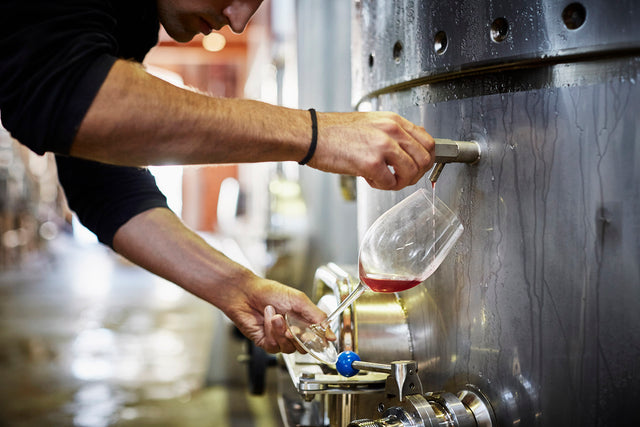The importance of temperature for Rosé wine fermentation
We get it! You have become quite a Rosé Lover and want to know everything there is to know about your favorite Rosé wine. Don't fret, we are here to help you!
In this article, we will take a closer look at how to make Rosé wine, specifically the fermentation temperature as it is one of the key variables to ferment Rosé wine.
Top-quality Rosé takes into consideration all the process; starting from the harvest to transportation, maceration, alcoholic fermentation, etc. The Born Rosé production is carefully controlled in all of its steps by our winemakers to achieve one of the finest Rosés in the market.

When it comes to fermentation, the key variables to consider are the fermentation temperature and the yeast selection.
The temperature increases yeast metabolism and enzymatic activities. In other words, the yeast converts the grape's sugar into alcohol and carbon dioxide, and at high temperatures, the process occurs faster. However, if the temperature drops too low, the yeast becomes inactive.
Selecting the yeast to ferment the grape's juice or must is accordingly important as it will affect the wine's style. For now, we won't get into the many different types of yeast available (as much as you would like us to), but know that some types of yeast will produce fresh, fruity, and expressive wines while others will enhance the aromatic profiles and produce more round and balanced wine.
Fermentation of Rosé wine
As you may know, the grape skins are responsible for the wine's pigmentation. During Rosé fermentation, the grape skins are left in contact just enough time to transfer the iconic pink hues. Once the desired color is obtained, the must is pressed and transferred to another tank where the fermentation continues without the skins.
A Rosé's fermentation takes around 2 to 24 hours to complete, as opposed to red wine which can be fermented for weeks. The Rosé fermentation temperature is also lower to preserve the fresh and fruity characteristics, while red wine fermentation is warmer, to maximize extraction of tannins and pigments from the skins.

Optimal temperature to ferment Rosé
In our case, the organic Grenache grapes used to make Born Rosé Barcelona are fermented at 60F-64F at the beginning and then reduced to 54F-58F after half of the fermentation has occurred. But why? We have found these temperature ranges to be optimal for our grape variety. Low temperatures 54F-58F favor esters production which are responsible for the wine’s different aromas. On the other hand, high temperatures 60F-64F favor the wine’s character which are the top-notch qualities that distinguish our wine.

